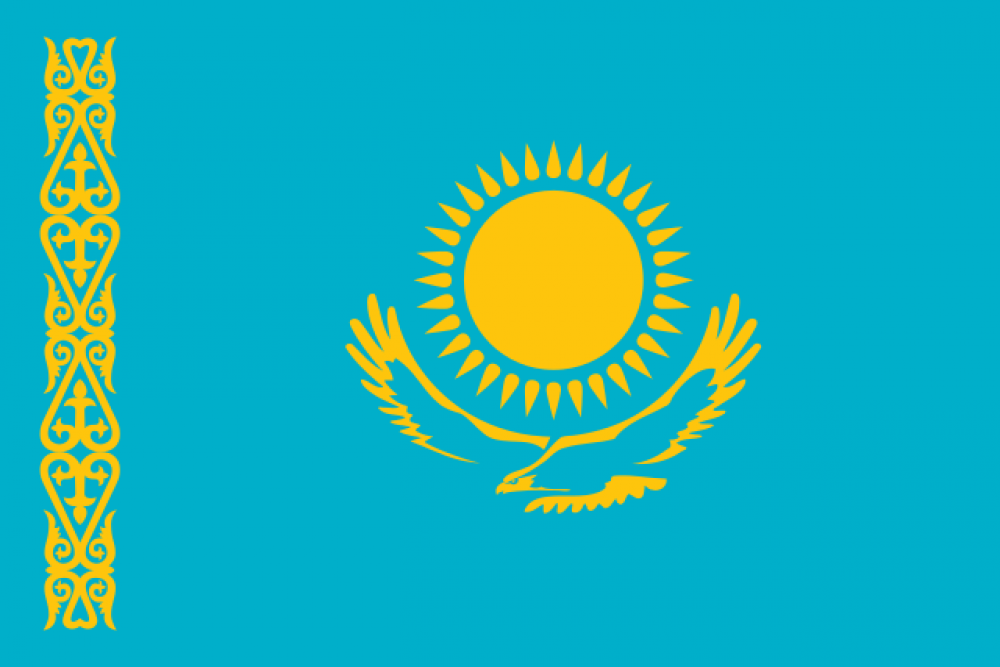The Republic of Kazakhstan is developing the education system
Global education
Русская версия
The education system in Kazakhstan is undergoing continuous modernization and reforms due as it needs to adapt to the changing socio-economic conditions in the country and the world. Education is recognized as one of the main priorities in the long-term strategy "Kazakhstan - 2050", which is reflected in a number of basic documents and government programs.
In the 90s of the last century, the quality of education in the country showed a steady downward trend. The economic development triggered the educational reforms. Since 1999, the transition has been made to a new system of education that corresponds to the international classification recommended by UNESCO.
At the present stage of development the Kazakhstan education and science system strives to make high-quality education accessible for every citizen. The State Program for the Development of Education of the Republic of Kazakhstan for 2011–2020 and the National Export Strategy of Kazakhstan for 2018–2022 are being implemented, the strategic development plan of Kazakhstan has been updated and extended until 2025, some changes and additions have been made to the Law on Education (2007, 2015), etc.
The Ministry of Education and Science of the Republic of Kazakhstan (MES RK) is responsible for the implementation of the unified state policy in the field of education, intersectoral coordination, development and implementation of international programs.
In accordance with the measures taken to improve the quality of education in Kazakhstan, the following main areas of development of all levels of education are defined: pre-school education and training, secondary, post-secondary, technical and vocational, higher and postgraduate education.
Preschool education and training
The government of Kazakhstan took the problem of pre-school education seriously as its absence had a negative impact on the readiness of children for further education. Public and private investments in the reform of preparatory education have led to a rapid increase in the number of pre-school institutions (and one in three is going to be inclusive). All preschool education and training institutions are gradually introducing the elements of a multilingual education program. Each year, about 7,000 teachers of preschool education take advanced training courses at the expense of budget funds. By 2020, the government plans to increase the number of teachers having specialized higher, technical and vocational education by half.
Secondary education
Education is being digitized under the state program “Digital Kazakhstan” (2017) and the Kundelik electronic journal and diary is being introduced. Based on the experience of the Nazarbayev Intellectual School (NIS) the content of education is updated stage-by-stage for transition to 12-year education in schools and the introduction of training in three languages (Kazakh, Russian, English). The state compulsory education standard is being tested. At the same time, a model of per capita normative funding has been developed and is being tested to stimulate successful private and public schools. According to the MES RK, the full-scale implementation of the system will begin from the 2020-2021school year. Graduates of specialized schools for mentally retarded children are awarded certificates with a special series that ensure equal college enrollment opportunities for all applicants.
Technical and vocational education
The changes are made at all levels of education. In the past years much attention was paid to secondary education being the largest education sector. Today the government solves a number of tasks to improve the quality of education in colleges and to enhance the competitiveness of Kazakh universities. To date, there are 824 colleges and 130 universities (national, state, private, non-civil and other HEIs) in Kazakhstan.
In order to encourage school students to obtain job qualifications, the government plans to create the system of vocational guidance work coordinating activities of all interested parties: educational authorities, employers, parents' community. The project “Free vocational and technical education for everybody” (2017) is being implemented. The 9th and 11th grade leavers are provided with a free first job qualification based on college education.
New educational programs are being introduced according to international standards. Annual regional and national WorldSkills Kazakhstan championships allow students to integrate into the international movement and contribute to the training quality improvement. Students with special educational needs take part in the Abilympics and DeafSkills international competitions of professional skills at the expense of the colleges.
Professional standards are being improved in priority majors of economic sectors, covering all levels of qualifications. The professional standards are developed by associations of employers and approved by the National Chamber of Entrepreneurs. Flexibility of the standards of technical and vocational education, post-secondary education will enable educational organizations to change the content of curricula according to the requirements of employers and to introduce dual training. In 2019, a project was launched to provide an opportunity for graduates of 46 colleges to continue their studies in higher education institutions under new conditions: they will be transferred based on the results of assessment due to the unified system of credit-module training.
Higher and postgraduate education
In accordance with the requirements of the Bologna process, there is a three-tier model of skilled staff training in Kazakhstan: Bachelor's-Master’s-PhD programs based on the system of academic credits. At the postgraduate level, according to international experience, postdoctoral programs have been introduced to develop the scientific career of Kazakh scientists.
Almost 30% of all students enrolled in Kazakhstan universities receive state educational grant. In the 2018-2019 academic year, 20,000 grants were additionally allocated, besides 53,000 grants that are provided annually. However, the MES RK significantly increased the requirements for Kazakh universities, depriving them of licenses for unclaimed majors, which led to the profilisation of universities in the main areas of education.
High demand for studying abroad is supported by state educational policy. One of the most common initiatives in the internationalization of higher education is the Bolashak scholarship established in 1993. It is aimed at helping talented young people to receive high-quality education abroad. The scholarship covers all expenses related to education, including tuition fees, travel expenses and accommodation. The program requires that all participants in the program, upon completion of their studies, go back to Kazakhstan and work in the republic for five years. The most popular host countries are the UK, USA, Germany and Russia.
In total, the Bolashak program has signed agreements with 33 countries and 200 educational organizations around the world. In 2019, the proficiency requirements of the Korean, Japanese, German, and French languages decreased on the one hand, but on the other the English language proficiency increased.
Education export is developing, with more than 20,000 foreign students from Uzbekistan, Turkmenistan, Kyrgyzstan, China, India and other countries studying at Kazakh universities. Their number is expected to reach 50,000 by 2025. For this purpose, Kazakhstan plans to create a Central Asian educational center based on the model of Dubai and Malaysia, which will help Kazakh universities to attract more foreign students and scientists and develop the best educational programs.
Higher and postgraduate education in Kazakhstan is integrated with science and industry. In order to strengthen universities' research potential and engage leading scientists of the Research Institute in teaching activities, the education and science integration project has been implemented since 2014. More than 9,000 agreements with foreign partners have been signed in the field of education, science, quality assurance, youth policy, academic mobility and the development of joint or dual programs.
The reforms carried out by the Government of the Republic of Kazakhstan are aimed at the development of internationalization of Kazakh higher education, competitiveness enhancement and quality of education improvement.
The changes in the educational system of Kazakhstan are an objective necessity caused by the dynamics of the development of science, economics and technology. To achieve a strategic goal, the country develops the continuing education model integrated into the global educational market, providing flexible multi-level specialists training in accordance with the labor market needs.
Read more:
- https://kokshetau.asia/obshchestvo/28559-chto-proiskhodit-v-sisteme-obrazovaniya-kazakhstana
- https://kursiv.kz/news/tendencii-i-issledovaniya/2018-06/kak-vybrat-universitet-reyting-vuzov-rk-po-stoimosti
- https://strategy2050.kz/ru/news/51858/
- https://www.inform.kz/ru/utverzhdena-gosprogramma-razvitiya-obrazovaniya-i-nauki-kazahstana-na-2016-2019-gody_a3341533
- edu.gov.kz
